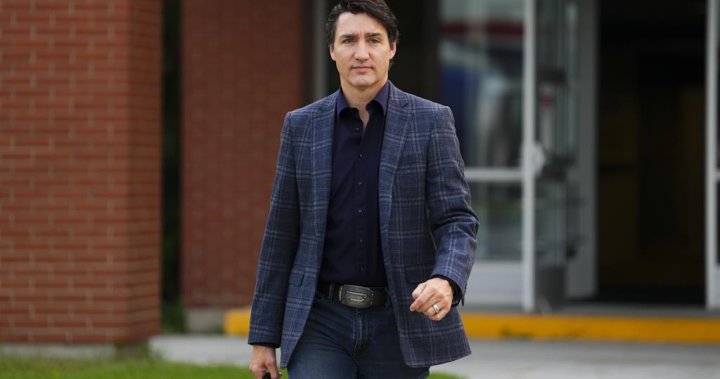
Critical decisions ahead as Trudeau goes off to NATO summit
Global News
Canada will likely have to play a big role in discussions at the NATO summit this week about expanding alliance membership and its efforts to refocus on collective defence.
Prime Minister Justin Trudeau is heading to the NATO leaders’ summit in Lithuania this week, where Canada is likely to play a larger-than-usual role in two critical discussions: the alliance’s expanding membership and its efforts to refocus on collective defence.
Trudeau is expected to depart for Riga, Latvia, from Ottawa on Sunday evening. He is due to meet with that country’s leaders on Monday before heading to the Lithuanian capital for the first day of the NATO summit on Tuesday.
At last year’s summit in Madrid, NATO leaders identified Russia as “the most significant and direct threat to allies’ security and to peace and stability in the Euro-Atlantic area” in a strategic concept document that set out their intent to strengthen deterrence and defence in the region.
That came after a meeting in Brussels in March 2022, when leaders agreed to deploy four new multinational battle groups on the eastern flank in Bulgaria, Hungary, Romania and Slovakia, adding to those in Estonia, Latvia, Lithuania and Poland.
The alliance has drafted a new defence plan that leaders will be asked to approve in Vilnius, one that is being described as a return to its Cold War stance.
“What we’re seeing now is really a return to NATO’s core business,” said Tim Sayle, a NATO historian and professor at the University of Toronto.
He said this likely also means a return to more challenging negotiations among members as they decide on defence policy and procurement, at the same time as they are debating whether to allow Sweden and Ukraine to join. And on both topics, he said, allies will be looking to Canada.
“Rarely are there summits where Canada would be a focus of any elements, but I do think (it) is here,” Sayle said.

A new report from the Angus Reid Institute shows that Saskatchewan residents are struggling financially or feel they’re in uncomfortable positions. Experts say it’s due to the high cost of living and stagnant wages. Katherine Ludwig breaks down the report and talks with experts about the reasons behind the struggle.










